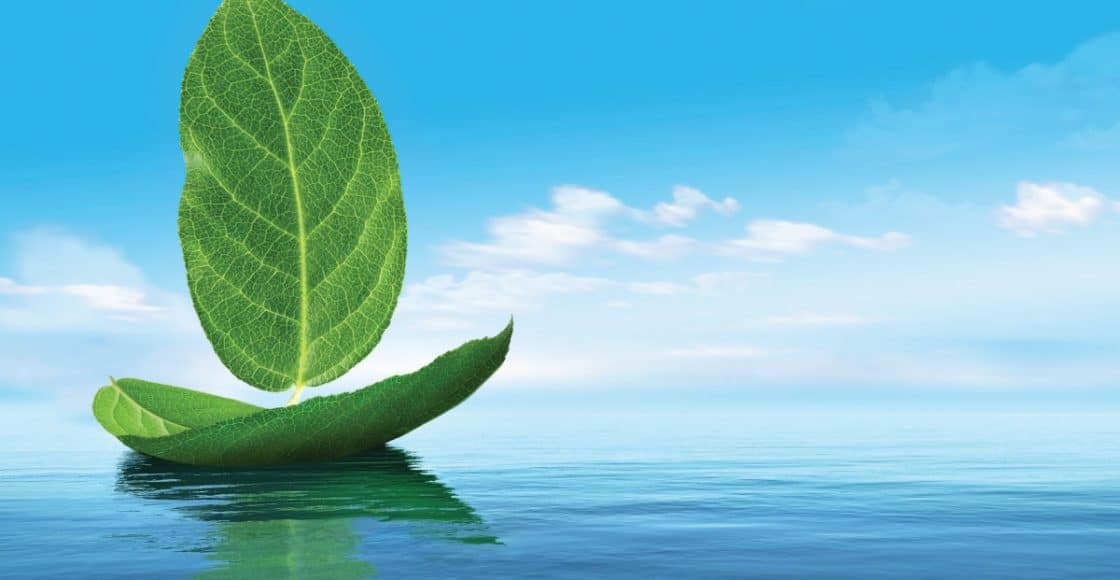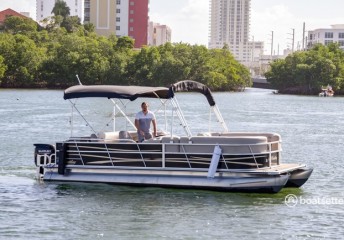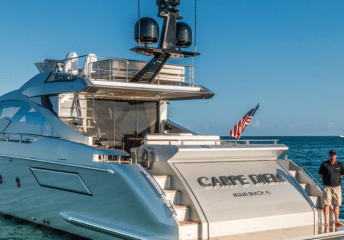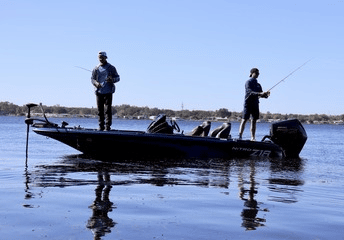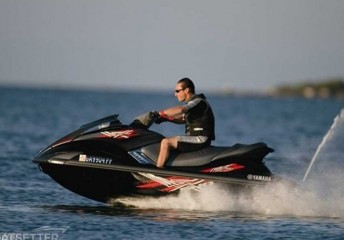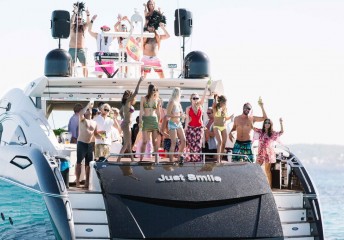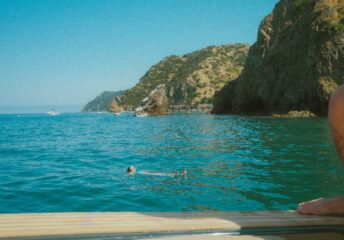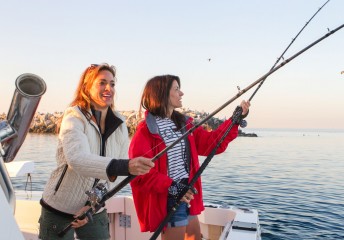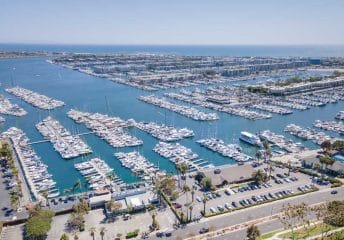8 Ways to Be an Eco-Conscious Boater
Last Updated on March 28, 2023 by Boatsetter Team
“Becoming a better boat means being a steward of the planet (oceans and all). Put these practices in place and cruise with peace of mind.” — Green Boating Specialist
Boaters are key to these eco-conscious boating practices as they directly access our beloved waterways. While environmental consciousness is thankfully a big part of everyday maritime conversations and is growing, many still don’t know where to start their eco-friendly boating journey. Allow our eight eco-conscious boating tips to help you find the path to minding your wake.
Post Summary:
- Be considerate of sea creatures
- Fish responsibly
- Take out the trash (properly)
- Dispose of black and gray water
- Fuel up properly
- Mind your wake
- Use sustainable cleaning products
- Recycle and upcycle
TOP Electric Boat Rentals ready to go— Book now!
1. Be considerate of sea creatures.
Seeing birds, dolphins, whales, turtles, and marine life is amazing. To ensure they—and you—stay safe, keep your boat at least 300 feet away from them, no matter the species. Don’t ever chase them, and if you see a mother with her babies, avoid separating them even inadvertently. If mammals or animals approach you while you’re underway, drop your speed and put your engine into neutral or lower your sails. If the creatures act erratically or aggressively, leave immediately. And finally, if you see them in distress, call the Coast Guard on VHF channel 16 immediately. Don’t try rescuing them.
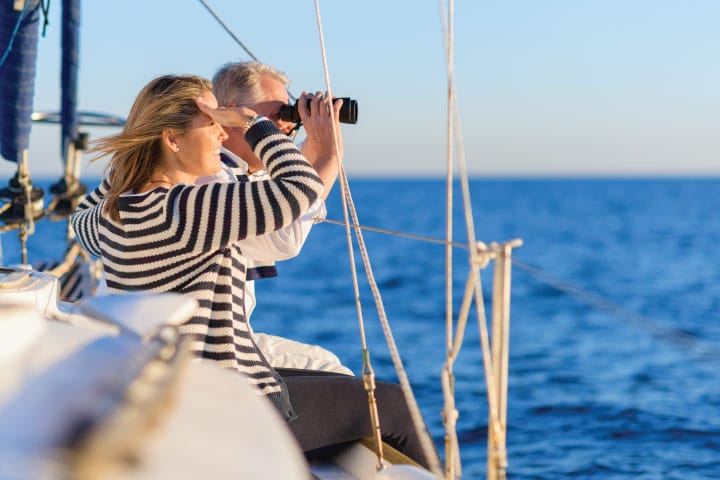
2. Fish responsibly.
Size and catch limits exist to ensure the fish populations survive and thrive. Make sure you understand the regulations for where you’d like to fish before heading out. Also, consider catching and releasing instead of catching and taking the fish home. Letting more fish remain in the waters allows for repopulation and ongoing sustainability.
3. Take out the trash.
The simplest step to being an eco-conscious boater? Never, ever throw anything in the water that doesn’t belong there. This rule should apply to everyone who boards your boat as well. Cigarette butts, plastics, and a host of other trash threaten the health of marine life, with some creatures further swallowing garbage. Every wrapper and container that comes aboard should leave with you, going into proper receptacles at the marina. Speaking of the marina, let the managers know if better waste collection and recycling options are needed.
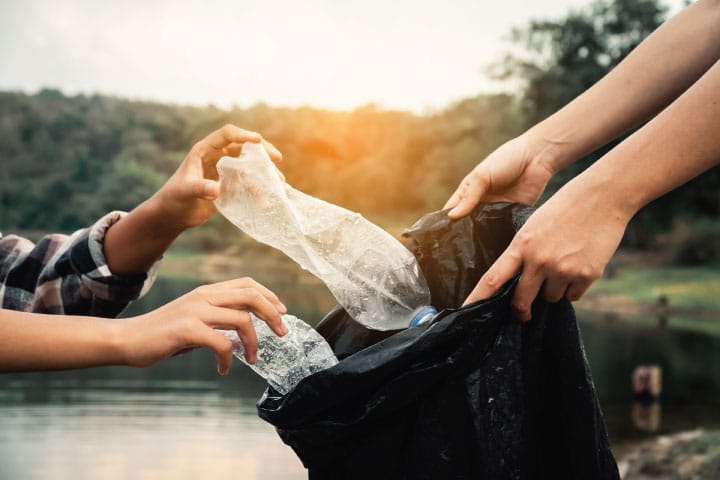
4. Dispose of black and gray water properly.
Blackwater is the wastewater and sewage from your onboard toilets. Graywater, meanwhile, is from a boat’s sink or shower, among other non-toilet sources. Both are incredibly harmful to the environment, and stiff penalties result from disposing of either in unauthorized ways. It’s flat-out illegal to dump blackwater overboard. Therefore, always use proper pump-out facilities and procedures to empty your boat’s head. Graywater-disposal policies are available from your marina.
5. Fuel up properly.
Avoid overfilling and therefore spills from your tank. Accidents do sometimes happen, of course. In anticipation, keeping a rag or a spill kit onboard is wise. It’s probably a good idea to give your fuel lines and tanks a good once-over during the season, ensuring no cracks or leaks exist.
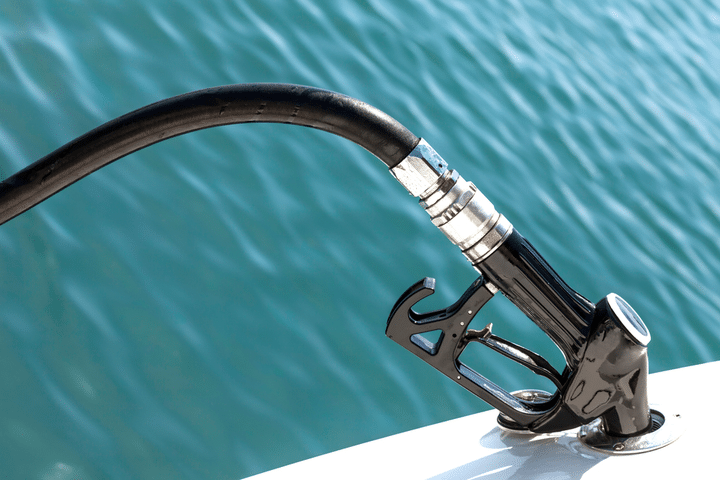
6. Mind your wake.
No-wake zones aren’t just for preventing fellow boaters from rocking and rolling. They’re effective at raising environmental consciousness, too. For example, wakes contribute to shore erosion. Additionally, they can wash eggs out of shallow-water nests.
7. Use sustainable cleaning products.
A host of eco-friendly boat cleaners and soaps are widely available. Look for labels indicating a product is biodegradable. “Non-toxic” is another important term to note. The Environmental Protection Agency also recommends seeking products bearing the Green Seal label. Green Seal is a global nonprofit that certifies products or services meet high standards for health and sustainability.
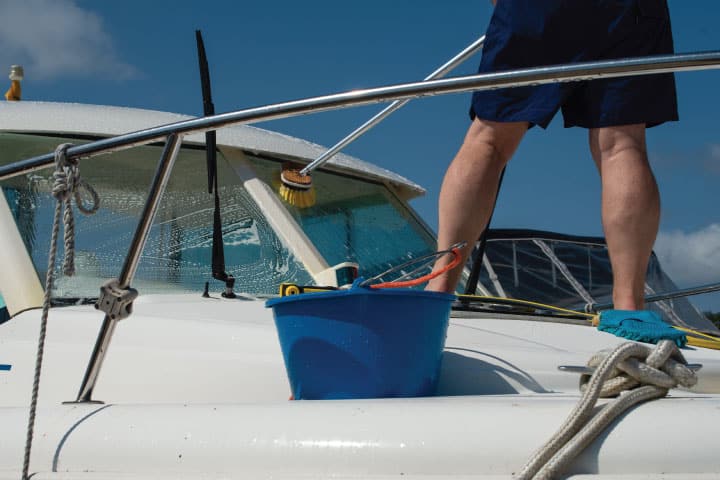
8. Recycle and upcycle.
Yet another super-easy and super-simple way to be a more eco-conscious boater is to recycle and reuse—a.k.a. upcycle—boating gear. Did you know, for instance, that your old sails can become terrific tote bags? Several companies will take them from you for repurposing. Some charities and organizations welcome gently used PFDs, ideal for their life-jacket loaner programs. Ultimately, every little bit helps keep gear from ending up in landfills.
Recreational boating can do good for you and the planet. Check out more green boating resources and browse through our fleet of electric boat rentals.
Boatsetter is a unique boat-sharing platform that gives everyone — whether you own a boat or you’re just renting — the chance to experience life on the water. You can list a boat, book a boat, or make money as a captain.
Got an electric boat? Rent it out AND do good. List & Earn with Boatsetter

A journalist with more than 30 years’ experience, Diane M. Byrne is the owner
of MegayachtNews.com, a daily website educating American superyacht owners, buyers, and
their circles of influence about the leading builders, designers, cruising destinations, and more.
She founded the website in 2007 as the first, and still the only, American-focused online media
outlet exclusively covering this market. It features all-original content, for real stories of real
interest.
Diane is additionally one of the most-sought-after journalists for expert editorial coverage and
commentary about not only superyachts, but also general boating and yachting. Her byline
appears in Boatsetter.com, DiscoverBoating.com, and the magazines Luxury Guide, Ocean,
Yachting, and Yachts International.
Additionally, Diane is the Chair of the U.S. Superyacht Association, having been on the Board of
Directors since 2015. Outside of yachting, she’s a trustee of Sempre Avanti, a non-profit
resource supporting Italian and Italian-American individuals, businesses, and organizations in the
United States and Italy.
